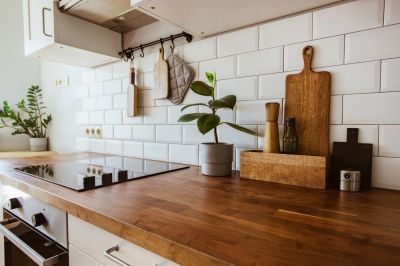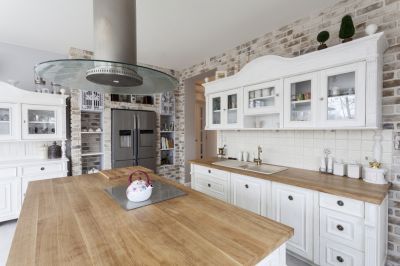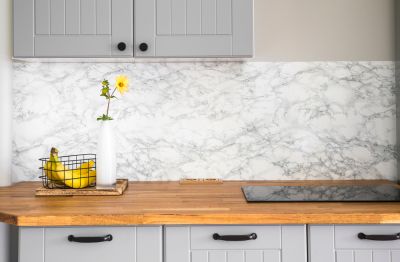Benefits of Butcher Block Installation Service
- 1. Warm and Natural Aesthetic
- 2. Exceptional Durability
- 3. Renewable and Eco-Friendly
- 4. Ideal for Food Preparation
- 5. Easy to Maintain
- 6. Customizable Design
1. Warm and Natural Aesthetic
Butcher block countertops offer a warm and inviting aesthetic to any kitchen. Their natural wood grain and warm tones create a cozy atmosphere that complements various interior styles, from rustic to modern.
2. Exceptional Durability
Despite its inviting appearance, butcher block is remarkably durable. It can withstand daily use, including chopping, slicing, and dicing, without showing significant wear or damage.
3. Renewable and Eco-Friendly
One of the unique advantages of butcher block is its renewability. When the surface becomes scratched or worn over time, it can be sanded and refinished to look brand new, reducing the need for replacement and promoting eco-friendliness.
4. Ideal for Food Preparation
Butcher block is a favorite choice for food preparation areas. Its natural wood surface is gentle on knives, and it doesn't harbor harmful bacteria. This makes it an ideal surface for cutting, chopping, and food-related tasks.
5. Easy to Maintain
Maintaining butcher block countertops is relatively easy. Routine cleaning with mild soap and water, along with periodic oiling to nourish the wood, keeps the surface looking its best and helps prevent drying or cracking.
6. Customizable Design
Butcher block countertops are highly customizable. You can choose from various wood species, finishes, and thicknesses to achieve the perfect look for your kitchen. Customization options also include edge profiles and inlays.
Frequently Asked Questions
1. How often should I oil my butcher block countertops?
It's recommended to oil your butcher block countertops every 3-6 months, or when the wood appears dry or lacks luster. Using a food-safe mineral oil or butcher block conditioner is essential to maintain their beauty and protect the wood.
2. Can I use bleach or harsh chemicals to clean butcher block?
No, it's not advisable to use bleach or harsh chemicals on butcher block countertops, as they can damage the wood and its finish. Stick to mild soap and water for cleaning to preserve the wood's integrity.
3. Are butcher block countertops prone to stains?
Butcher block countertops are susceptible to staining, especially from foods like berries or red wine. Promptly cleaning spills and using cutting boards can help prevent stains. If stains do occur, they can often be sanded out during refinishing.
4. Can I install an undermount sink with butcher block countertops?
Yes, you can install an undermount sink with butcher block countertops. However, it's crucial to ensure proper sealing and protection around the sink cutout to prevent water damage to the wood.
5. Are there any wood species to avoid for butcher block?
Some wood species, like softwoods, may not be suitable for butcher block countertops due to their softer nature. Hardwood species such as maple, oak, and walnut are popular choices for their durability and strength.




